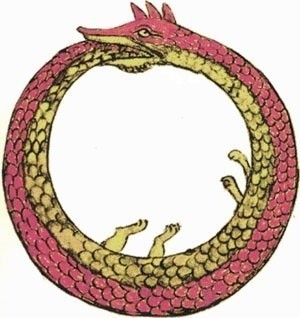
After years of discussion and appeal, the Internet Corporation for Assigned Names and Numbers (ICANN) has finally approved the ".xxx" domain suffix for adult entertainment sites. Though it won't be for some time until the 281st domain suffix becomes applicable, the approval has generated quite the controversy nevertheless.
After browsing close to 100 articles on the subject and standing on the sidelines of the numerous anonymous comment wars of tech blogs, the only thing I could glean, for certain, is that the real beneficiary of the dot-XXX suffix would be the company that originally proposed it: ICM Registry. The Florida-based company initiated the process back in 2005, only to be inundated by protests and threats from religious groups and the Bush Administration, who even threatened to enact legislation to override ICANN if it ever approved the TLD suffix. The Obama administration doesn't seem to care, and I'm not entirely surprised.
Red Light Districts exist, whether by name or by principle, in almost ever major city. If you live in a metropolitan area, you're generally aware of those neighborhoods that contain Sex Shops, Adult Bookstores, Exotic Dancing (and in some cases, more lascivious services). Imagine if someone came to your city and built a warehouse that spanned twenty or so square blocks and named it, I don't know, something like The "ALL PORN IN THE HISTORY OF EXISTENCE IS LOCATED HERE, IN THIS WAREHOUSE. SERIOUSLY, ANY PORN YOU WOULD WANT OR COULD FIND OR HAVE EVEN DREAMED OF ONCE WHILE YOU WERE AT WORK OR IN TRAFFIC IS PROBABLY HERE WAITING FOR YOU TO DISCOVER IT" Building. And they wrote that on the top of the building, which you can conveniently see from space.
There would be no inherent reason for any of your local sin-shops to relocate to this building. But with that kind of advertising, why wouldn't they?
Cyberspatial architecture often deliciously evades physical comparisons to our reality, but this is pretty close. There's a very interesting Orobosian process at work here: Porn sites have no obligation to register for these domain names, but now the entire world believes that the ".XXX" is an ontological content determiner rather than a few letter after a period to which ICM Registry has attached a semantic signifier.

For the layman: "There's porn there because we say there's porn there, even though there's no porn there. Yet."
Further proof that the optimistic sensibilities of "Field of Dreams" is not entirely dead: "If you build it, they will come."
Back in the day, the idea(l) was that all commercial sites would have ".com", all non-profits would use '.org", etc. But these days, dot-orgs and dot-nets are more likely to be sites whose dot-coms were already taken, or held at such a high cost that your average internet user trying to start (MyName).com blog wouldn't want to fork over the dough. So you get (Myname).biz, .net., etc. Yet we continue to perceive these suffixes as indications of content, even though that ship clearly sailed with the "whitehouse.com / whitehouse.gov" (ongoing) debacle.
ICM has exclusive control over this TLD, so everyone that wants to register a dot-XXX must pay them, which is pretty much every porn site that wants to benefit from that kind of traffic. But the shining (and most likely economically motivated) idealism from ICM about creating a domain suffix where internet denizens can enjoy fraud-free, malware-free, child abuse/molestation-free content doesn't much change the current cyberspatial pornographic ecosystem: All of the ".com" porn sites are going to remain on those domains as well. This is not so much a replacement as it is an addition to an already porn-riddled web. It won't make filtering any easier for parents or IT- they'll just have to add another filter input.
As far as keeping children safe from being corrupted- let's be honest here people. Americans are probably the only ones worried that children will be corrupted by sex, yet MTV these days has less and less M and more and more T ( and A)- and is available on basic cable. Also, there are already probably millions of porn and sex sites out there on the dot-coms, easily accessible. How many children, by the time they get to the age where they might be searching for pornography, know less about their computers than their parents? How many children don't know how to put in the billing information for a credit card?
How does a dot-XXX suffix legitimize the sex industry any more than what's currently in place? God forbid, religious groups, that you even own a computer connected to the web, lest your children discover 4Chan.
And first-amendment activists, no one is forcing these sites to relocate- they're still going to have access to all of their original domain names. Porn sites, I know you're worried about dictatorships and conservative administrations being able to singlehandedly shut all of you down in their respective nations. It's a valid concern, but you could, I don't know, keep your existing domain names? Organize an industry-wide coalition, consortium, or boycott of the dot-XXX sufix? Keep making porn?
All that has really changed is that Porn sites now have the "option" to buy into a domain suffix that would be moderated by a single entity, thereby allowing them to offer to their clients a virus-free, "clean" website. But how long is it going to be before someone figures out how to troll ICM's suffix for user data, credit card information and the like? In fact, wouldn't having all of those sites in that giant internet warehouse increase the pot just a bit? Also, if a prostitute were to show you a note from her doctor pronouncing her clean of STD's, does that remove your fear of contracting one?
ICANN is evidently on its way to approving the submittal process for any and all suffixes (pending certain guidelines). Even if this leads to the internet becoming a sea of arbitrary suffixes, relevant content wouldn't be that hard to find considering that every browser comes with a search bar, if not the ability to search within the address field. Search is already an integral part of our internet experience- the existence of a few (million) more domain suffixes isn't going to change that.



